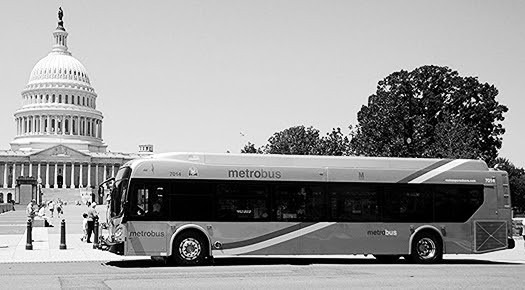
Photo Credits: Flickr
More than two years ago, the Roman Catholic Archdiocese of Washington sued the Washington Metropolitan Area Transit Authority (WMATA) because it wouldn't accept a religious-themed advertisement. The Archdiocese sought to place an ad on the outside of public buses that showed the silhouette of three shepherds and sheep accompanied by the text, “Find the Perfect Gift." The ad was not accepted because it violated WMATA's guidelines and a policy that prohibits all "issue orientated advertising" from buses and trains. Originally, this policy was adopted to prevent an anti-Muslim hate group from putting ads up but it has much broader effect and the Archdiocese believed that there was no good reason to block ads involving religion if they are not hateful.
A federal judge didn't agree with the plaintiff and his ruling was not in favor of the Archdiocese so they appealed it but the D.C. Circuit Court of Appeals ruled that the earlier decision was correct and WMATA did nothing wrong. There was another appeal to the Supreme Court and the Archdiocese hoped that the justices would overturn the earlier rulings so religious-themed advertisements would be allowed on all city buses and trains, but that didn't happen. The Supreme Court declined to take up this so called "religious case"so earlier rulings remained in place, but the decision came along with separate opinions from two of the most conservative justices. According to The New York Times, Justice Brett Kavanaugh took no part in the court’s consideration of the case because he served on the three-judge panel that heard arguments at the appeals court where he served before joining the Supreme Court in 2018. Two other justices wrote a brief separate opinion to assert that the matter would have been different had Kavanaugh been a part of the case.
Anyway the result was that an appeal was rejected and WMATA's guidelines and policy about a ban on bus advertisements stays in force. If the policy were overturned, it would have opened the door, not to religious ads only, but to different types of ads from everyone else. The WMATA's guidelines are there in order to prevent controversy and it doesn't single out religious ads specifically. The policy is not discriminatory and it is not pointing at any religion in particular, it is just a safeguard against numerous types of abuses that could occur if it was overturned.
